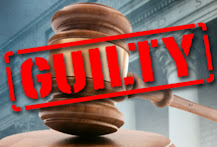If the August 24-27 Republican
National Convention were a legal case and we sat as appellate judges
deciding on the proceedings, our opinion might look like this:
Before Justices Jones, Walker, and Wiley. Justice Wiley delivered the
opinion of the court, joined by Justice Jones. Justice Walker, joined by
Justice Jones, concurred and dissented in a separate opinion:
conventions
because it wasn’t held in a big hall before thousands. Republicans weren’t as careful as Democrats had been about social distancing or wearing masks. The GOP permitted live audiences for some
speeches.
We don’t know if President
Trump will get the coveted “bounce” in the polls. Even if he does, history
suggests that won’t last and the presidential race will settle into stability
until the debates begin at the end of September.
A Matter of Location
Trump delivered his 71-minute
acceptance speech from the White House rose garden before 1500 people, not socially distanced and mostly unmasked. Trump
made clear the GOP’s strategy in the coming campaign – falsely claim he has handled the pandemic
well, attack Joe
Biden on China-related trade issues, and go after Democrats over civil
disturbances.
 |
| Trump delivering his speech before large crowd - mostly unmasked and not socially distanced. |
Convention planners paid the criticism no mind. They thumbed
their noses at potential Hatch Act violations, secure in the knowledge Congress,
with a Republican-controlled Senate,
could do little about them. Some House members promised investigations, but
probably nothing will come of them.
A Matter of Strategy
For Trump, trailing in the polls, the
strategic question as putting on a show targeting the limited
number of undecided voters versus one aimed at solidifying the base. For the
most part, he chose the latter approach. Speakers and prepackaged segments
served up red meat on abortion, guns, and the horror of black and brown hordes
supposedly invading the suburbs. That decision made commentators like MSNBC’s
Nicole
Wallace, a former GOP
operative herself, wonder out loud if the Trump campaign feared
it didn’t have its base locked down. Others speculated he was simply trying to scare his base to the polls. Few speakers
offered an inclusionary vision. The messages catered to those already on
the Trump train or standing at the station for boarding.
A Matter of Race
The convention occurred during an
uproar, including postponements of NBA,
WNBA,
MLB,
and NHL
games by protesting players,
Most speakers made only passing references to calls for
reform in the wake of the police shootings. Instead, they heaped praise on law
enforcement and painted a dark picture of life under a Biden presidency,
ignoring the fact recent civil unrest occurred on Trump’s watch.
Convention planners trotted out black male speakers who
proclaimed Trump isn’t a racist and that blacks who think for themselves
support him. The move likely came from the view, reflected in polling, that
some black men find Trump’s aggressive style appealing, meaning Republicans
could peel off ballots from a few black men while black women remain the
Democratic party’s most loyal voting group.
A Matter of Truth
This convention didn’t establish a new
standard for honesty in Trump world. One CNN
fact-checker found
over 20 inaccuracies in Trump’s acceptance speech. In fact, speaker after
speaker misstated facts, offered blatant inconsistencies, or told outright lies
about Democrats, Biden, and the world in general. Some of the insults were
particularly
 |
| Lou Holtz speaking at RNC |
troubling, like former football coach Lou Holtz’s Wednesday night assertion that Biden is a Catholic “in name only”
because he supports abortion rights. One Catholic priest pointed out Trump and
his supporters don’t agree with or follow many other Catholic teachings.
The convention’s portrayal of Trump also suffered from a truth-telling deficit. Much said conflicted with what we’ve seen the last three and a
half years. The program presented Trump as compassionate, competent in handling
the pandemic, and sensitive to ordinary Americans. It resembled a play put on
for the purpose of supporting a man who embodies almost nothing he is. The
party described a fictional character when someone just the opposite hovered
off stage waiting to speak his lines.
Trump’s convention marked another low
point in his presidential tenure. He disregarded
norms, flaunted or openly
violated the law, and engaged in massive deception. It was an
additional item on the long exhibit list justifying a vote for his challenger.
Justice Walker, joined by Justice Jones, concurring and
dissenting:
The Republican National Convention reminds me of the
principle I learned from my mother: If
you can’t say something good about something or somebody, don’t say anything.













































